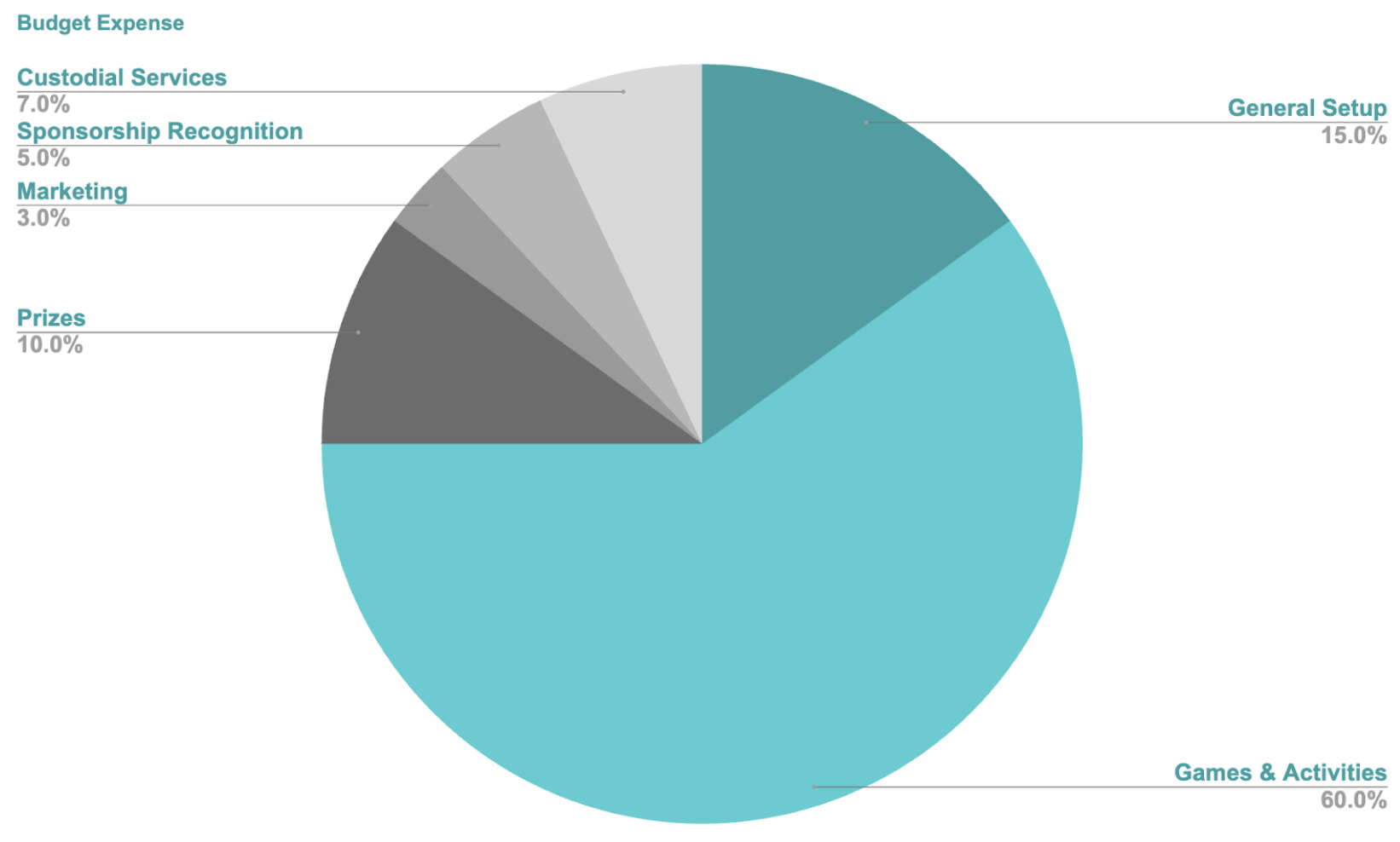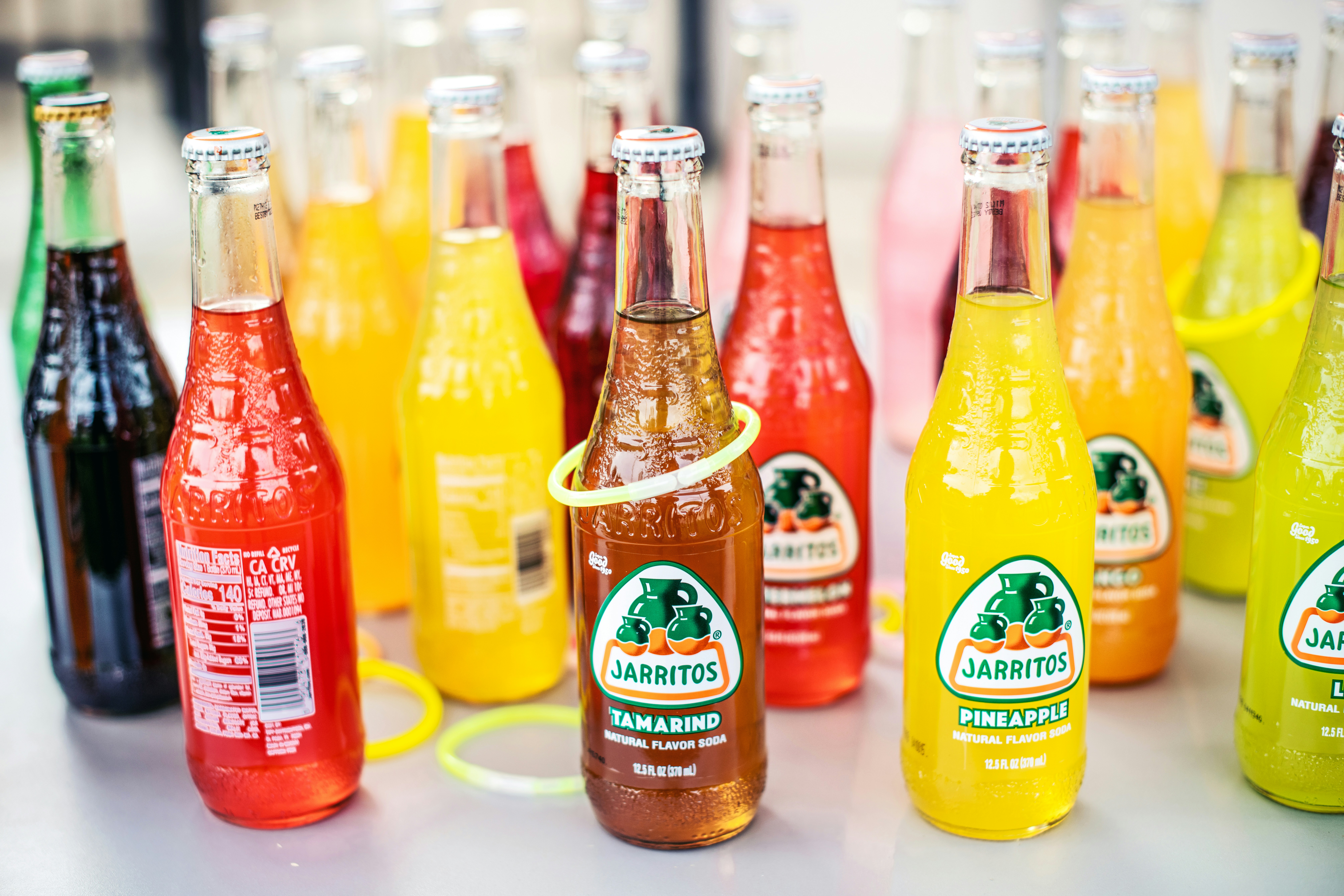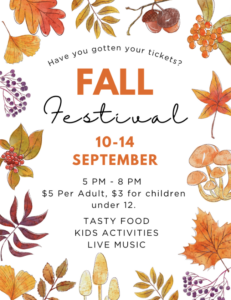“Let’s plan a school carnival,” they said. “It’ll be fun!” they said. And it probably was fun until you started building a realistic budget for your school event. Between entertainment, games, marketing, and generic set-up materials, the costs for school events can skyrocket quickly. And even after you secure the money, you have to plan it all!
Don’t sweat it. We put together this guide to planning school events and carnivals to take the stress out of planning, especially if it’s your first time. In this blog, we cover everything from securing sponsors (AKA getting the money 😉) to planning and advertising your event. Don’t check out before the end, because we may even have some awesome tools that will make planning your event a breeze.
We know this is a lot of information, so use this table of contents to jump to what you need:
- Getting Sponsors
- Budgeting
- Planning and Preparations
- Marketing and Promotion
- General Best Practices
- Tools & Resources
Getting Sponsors

Local businesses can help pay for things like a petting zoo or chairs and tables for your school event. It’s good to have different levels of donations so any business can help, big or small. For example, face painting can be a small donation, but a big bounce house might cost more. The more money a business gives, the more we will talk about them at the event and on social media.
Before asking businesses for help, get a group of parents together to share the work. This way, you can contact more businesses faster. If any of you know business owners, it could make it easier to ask them. Parents who are good at selling things or have worked with charities are perfect for this team because they’re used to talking to businesses.
Who wants to sponsor school events?

When it comes to finding businesses to sponsor your event, you may be left scratching your head. You may be wondering, “Who can I ask to sponsor my school event?” or “Do people even want to give money to my school?” You might be surprised, but the answer is likely yes.
Check with parents or people connected to the school who own businesses. They already care about your school’s success, so they’ll be more likely to consider donating to your event. Next, look at local businesses your school’s families often visit. These businesses will be happy to support an event that helps them connect with their customers.
Also, think about businesses related to your carnival activities. For example, a pet store might sponsor a petting zoo, or a movie theater could sponsor a popcorn stand. If you need more options, you can look outside your local area.
Gather a list of possible sponsors, and then it’s time to get to work.
How to get businesses to sponsor your school event
Once you have a list of possible sponsors, think about how to thank them. You could use signs at the carnival, thank them at the event, on social media, and in newsletters. Make sure your school is okay with these ideas.
Before you contact businesses, see if they have sponsorship guidelines on their websites. If they do, follow them. If not, write a sponsorship letter explaining how their money will help the school and what they get in return, like advertising. Customize your letter for each business for better results.
Here’s a form letter you can use, or write your own by using the following best practices:
- Communicate how your event will utilize sponsor money and benefit the school, as well as how the business can benefit, too. Event shout-outs in various forums amount to advertising for sponsors, which is an important benefit to highlight.
- Tailor some of your letters to each business you contact. A school parent might donate for different reasons from a local business, for example.
After sending out your letters, don’t forget to follow up with the businesses you’ve reached out to a few more times. Making a phone call or sending an email to the business owner will garner more attention and consideration for your letter.
The final step in getting sponsors for your event is to take action! Create your tiered sponsorship levels and a plan for recognizing sponsors — then send out your letters and follow up. You might be surprised by how much your local community wants to support your school.
Budgeting

When planning your school event, it’s important to stick to a budget. This budget usually comes from what was spent on past events. Use it to guide you. If you’re starting fresh or want to change the old budget, think about a few things. Consider what families are willing to pay for wristbands or tickets, how much you can get from local businesses as sponsors, and how much money your group has saved to cover necessary costs if you don’t make enough money.
Next, figure out how much it will cost to get all the rides, games, and activities you need to make the event fun for everyone. Don’t forget to add in the cost of prizes, candy, and any cleaning fees that your school’s cleaning staff or district might charge.
Generally, here is a breakdown of how you can expect to spend your budget:
General Setup –15%
To keep your carnival running smoothly, you’ll need basic things like tables, chairs, and tents. You might also need supplies like tickets, tokens, and wristbands.
Games & Activities – 60%
This includes the cost of the games themselves, like if you’re renting arcade games. It also covers items needed for specific games. For example, if you’re doing a cake walk and can’t get cakes donated because of school rules, you’ll need to buy them. If you want a dance floor, include the cost for that too. Renting things like a mechanical bull, rock climbing wall, or bouncy obstacle course can add unique and exciting elements to your event.
Prizes – 10%
Remember, games need prizes!
Marketing – 3%
Your team can spread the word about the carnival using the school’s morning announcements, social media, and website. Remember to tell all the parents! Making signs for the school’s drop-off area or flyers for kids to take home doesn’t cost much. Work with the school leaders to see what’s allowed and make sure you have money set aside for these things.
Sponsorship Recognition – 5%
Sponsors help pay for the carnival, but they’ll want people to know they helped. Thank them with shoutouts online and during the carnival. They often expect to see their names on banners by the activities they paid for. Banners can cost up to $55, so plan for that in your budget.
Custodial Services – 7%
School events are fun but messy. The school might charge extra for cleaning up. It’s a good idea to let the custodians who clean enjoy the carnival for free. Also, think about giving free tickets to the custodians and school staff as a thank you. Make sure to include this in your budget.
Budget Overview:

Planning and Preparations
Coordinating Volunteers

Every school event, from carnivals to parties, needs people to run it. Therefore, finding volunteers to help with your event is essential! Luckily, there are lots of people in every community willing to help out at school events.
For a school event, here are some examples of roles you may need volunteers for:
- Committee Chair: Leads the team, recruits and delegates tasks, communicates with school leadership and volunteers, handles paperwork and permits, and oversees budget and event setup.
- Marketing Chair: Shares event information with the community, uses social media, designs print and digital media, and works independently before the event.
- Candy & Prize Table Coordinator: Manages the candy and prize table, orders tokens, candy, and prizes, and sets up the table.
- Activities Coordinator: Oversees indoor activities, manages student volunteers, and ensures activity supplies are replenished.
- Carnival Games Coordinator: Sets up carnival games, coordinates student volunteers for the games, and prepares games in advance.
- Rides Coordinator: Decides on rides and attractions, stays within budget, ensures safety, and coordinates volunteers for ride safety.
- Sponsor Coordinator: Solicits donations from local businesses or families, manages monetary and in-kind sponsorships.
- Food Truck Coordinator: Finds food vendors, confirms availability, negotiates sales-based donations, and manages vendor needs during the event.
- Purchasing Coordinator: Handles purchases for the event, including tickets, wristbands, and supplies, and uses a tax-exempt certificate to save money.
- Treasurer: Manages finances for the event, leads ticket sales, reimburses expenses, and helps keep the budget on track.
Tips for Getting Parent Volunteers
Planning a school event takes a lot of helpers, and it used to be mostly parents doing all the work. But, parents often have little kids or more than one child to watch, making it hard for them to help out for the full event. Although parents may be willing to help, it is important to keep in mind that their time is valuable and to be considerate. So, we recommend reserving supervisory roles for parents.
So, how can you secure some parent volunteers for your school event?
- Inform parents early: Let parents know you need help way before the event. Tell them what they need to do and how long it will take. Share the message in many ways like emails, the school’s online page, and meetings, so all parents can hear about it.
- Make helping easy: Let parents choose short shifts to help so they can easily fit it into their day.
Student Volunteers for School Events
Student volunteers typically come from middle and high schools and offer their assistance at school events. Their involvement is a positive shift, especially given the extensive number of tasks available throughout the 5-hour event. Many belong to clubs or organizations that mandate volunteer hours for membership, such as the National Honor Society.
School events, like carnivals, often need a lot of helpers to run smoothly. Luckily, middle and high school students can be great volunteers for these events. They bring energy and fun, and younger kids at elementary school events love having them around.
To find volunteers, whether you’re hosting an elementary, middle, or high school event, consider the following tips:
- Talk to Clubs: Reach out to school clubs that require their members to volunteer. Explain how helping at your event can count towards their volunteer hours.
- Use School Announcements: Share information about volunteering opportunities through school announcements, whether over the PA system, in a school newsletter, or on the school’s social media pages.
- Offer a Sign-Up Sheet: Put a sign-up sheet in a common area like the school library or cafeteria. Make sure it’s in a spot where lots of students can see it.
- Explain the Perks: Let students know what’s in it for them, like getting volunteer hours, having fun with friends, and learning new skills.
- Ask Teachers for Recommendations: Some teachers know students who are looking for volunteer opportunities or who would be a good fit for your event. Ask them to suggest students who might be interested.
- Make It Fun: Tell students about the fun parts of volunteering at your event, like the chance to be in charge of a game or activity they like.
How Many Volunteers Do You Need?
Alright, so you know what kinds of volunteers you can get, now you may be asking yourself “How many volunteers do I need for my school event?”.
To calculate how many volunteers you need for your school event, start with how many stations you will have. Then consider how many people you need to manage each station. Finally, multiply that by the number of shifts you plan to offer (e.g. you might have two two-hour shifts for your four-hour event).
Here is the breakdown we used for a school carnival that we planned:
- 8 outdoor ride stations (inflatable obstacle course, bungee jump, etc.) x 2 people at each station x 2 shifts = 32 adult volunteers in 2 hour shifts
- 5 arcade games x 2 people at each station x 2 shifts = 20 student volunteers in 2 hour shifts
- 4 indoor activities x 2 people at each station x 2 shifts = 16 student volunteers in 2 hour shifts
- Setup/takedown uses 8 volunteers in 2 hour shifts before and after the event = 16 volunteers (usually one or two adults per shift and the rest are student volunteers)
- Total: 84 volunteers needed for our school event
As you can see, it takes a lot of manpower to make an event like this happen. But the payoff is worth it when the kids say it was the BEST school event ever! As you dive into planning, be sure to download our School Carnival Planning Guide to help you navigate every step smoothly!
Working with Vendors and Facilities
Where to Host a School Event
When you are hosting a school event or carnival, picking the right place is essential. Consider the following when choosing your facility:
- Space needed to run your school event successfully: Estimate the number of attendees and space needed for activities to ensure the venue can accommodate your event.
- Accessibility: Choose a location that is easily accessible to all participants, considering parking availability and public transport options.
To save time and money, consider hosting your school event at the school! Many event coordinators choose to use the school gym, library, cafeterias, football fields, and more to host successful school events.
Important Questions to Ask Facilities Managers
Once you’ve chosen a location for your school event, it is essential to gather important information that will help your event run smoothly. This can include simple information like where the bathrooms are located, or safety information for evacuation protocols. Here is a list of questions you’ll want to know the answer to before your school event:
- Where is the closest power source?
Food trucks and rides need power within 50 feet. If not available, you might need generators, which cost extra. Check with the facilities manager.
- Where can we get water?
Water slides and handwashing stations need water access within 25 or 50 feet. Ask the facilities manager about water outlets and hose lengths.
- Can we use stakes for tents or inflatables?
Stakes might damage irrigation lines, leading to expensive repairs. Ask if stakes are okay or if you should use water barrels instead.
- How do we get AC or heating for after-hours events?
Schools usually have a way to request HVAC for events. Ask how to make sure it’s on and warm or cool enough before the event starts.
- What’s the safety plan?
Some events might need hired security or specific safety roles for volunteers. Discuss with a facilities manager who does what if there’s an emergency.
- Are there any other rules I should know about?
Meeting with the facilities manager or an administrator can help you learn any special rules or tips to avoid problems on the day of the event.
Questions to ask Vendors for Games & Activities
Once you’ve secured items for your school event, it is important to work with your vendor to make sure that you know how to use the equipment and that you are following all safety protocols. Here are some great questions to ask vendors
Food & Beverage (Concessions)
- Do you have the required licenses and permits for our county? Ensuring the vendor has the proper license and permits is crucial for legal compliance and the safety of attendees.
- What are your food handling and safety practices? This question ensures that the vendor follows health authority guidelines for food safety, reducing the risk of foodborne illnesses.
Audio/Visual (A/V) for a School Event
- Can you assess our event space to determine our A/V needs? A pre-event assessment ensures you have the necessary equipment for sound and visuals, contributing to the event’s success.
- How many electrical outlets will you need access to? Knowing the number of outlets needed for rented equipment helps in planning the layout and ensures all A/V equipment can be powered effectively.
Inflatables/Rides
- Will we need to rent generators for the rides, and how much will it cost? This addresses the need for power sources for rides and inflatables, helping in budgeting for additional costs like generator rentals.
- How do we secure inflatables and rides safely? Safety is very important at school events. This question ensures that all rides and inflatables are secured properly, preventing accidents.
Tents
- Can tents be staked into the ground, or do we need water barrels? This determines the best method to secure tents without damaging underground utilities, ensuring safety and avoiding repair costs.
- Do larger tents require permits, and how do we obtain them? Understanding permit requirements for large tents helps in planning and ensures the event complies with local regulations.
Fun Attractions & Activities for School Events

When planning, it’s important to carefully plan your event with popular attractions and activities for school carnivals. Luckily, we’ve researched so you don’t have to! Here are the most popular attractions and activities for school carnivals of all ages in 2024:
Activities for School Events and Carnivals
- Slides: Slides are always a hit because they’re thrilling and fun for all ages. They’re a simple way to add excitement and are easy to use repeatedly. We recommend dual slides so that kids can race!
- Dunk Tanks: Who wouldn’t love to dunk their teacher or the principal? Dunk tanks are great for carnivals because they offer a fun way to cool off volunteers, and they are a great laugh for the children! (…just make sure no volunteers are assigned to the station for more than about 20 minutes at a time. It gets old going into and getting out of the water!)
- Obstacle Courses: Obstacle courses are exciting challenges that promote physical activity and teamwork. Most of the time they’re adjustable so that you can change them for different age groups. Like the slides, we recommend a dual version so that kids can race!
- Face Painting: Face painting is always a hit at school events for young and old children alike. It’s a creative activity that adds color and joy to any event.
Games for School Events and Carnivals
- Ring Toss: This game is a carnival classic because it’s simple, addictive, and suitable for all ages. It’s easy to set up and can be themed to fit the event.
- Milk Bottle Toss: Knocking down milk bottles with a ball is satisfying and offers a good challenge for all ages.
- Horse Shoe Toss: This game is a blend of skill and luck, appealing to both kids and adults. It’s straightforward, requires minimal setup, and can be played in small spaces.
Concessions for School Carnivals
- Popcorn: Popcorn is a perfect carnival snack because it’s easy to make in large quantities, plus it smells great! Popcorn is also very easy and affordable to buy in bulk.
- Cotton Candy: Cotton candy is a favorite because it’s unique and fun to watch being made. If you plan to serve cotton candy, consider renting a cotton candy machine! If you don’t want to make it at the event, you could still buy it pre-made in bulk.
- Deep fried Oreos: Who doesn’t love fried oreos? These are amazing because they’re easy and cheap to make. All you need is oreos and a few basic ingredients! If your event is themed, consider using food coloring to turn this treat into fun colors!
- Nachos: Nachos are a great choice because they’re customizable, easy to eat while walking around, and can be made quickly for large crowds. Plus, the chips, trays, and cheese can easily be bought in bulk and prepared in crock pots!
Marketing and Promotion

Once you’re past the bulk of the planning, you might be wondering how to market a school event. For your carnival to be a big success, you have to take a multi-faceted approach to getting the word out. The three main communication channels are:
- Digital
- Live
There is a basic marketing principle that you have to “touch” your target customer a minimum of 7 times before someone will remember and act. Displaying banners & posters all over the school, community, and on social media is a great way to get those touches.
Marketing Your School Event
You’ve worked so hard to plan a great school carnival. Now, you need to be sure that the school knows about it, buys tickets and shows up! So, here are our top 5 ideas for spreading the word about your school carnival.
Live Assembly Announcements/Skits
One of the best ways to get students excited about an upcoming school event, like the Fall Festival or Spring Carnival, is to promote with a live announcement during the weekly assembly. Make this entertaining by using students and the school mascot, so that you can ensure the students enjoy and share the story with their parents.
Social Media Posts
Most schools, booster clubs & PTOs have social media channels they use frequently. Request at least a weekly post for the month or two prior to the school event.
Also, most schools have parents who are part of a Facebook group for the local school or neighborhood. Ask the moderators/admins of that group if it would be okay to make occasional posts. Make sure you have captivating photos as that is mostly what grabs people’s attention as they are scrolling through.
Here’s an example:

Flyers
Flyers are a great way to catch peoples’ attention about your school event while they’re out and about in public. Design an eye-catching, colorful flyer, and then get to work hanging up the flyers around your school.
Put them up in the office where parents are likely to see them and give some to teachers as well to hang up in their classrooms. If you want the community outside of your school to attend, consider giving flyers to your local grocery store, libraries, and restaurants to hang on bulletin boards and distribute to consumers.
Here’s an example of a colorful, eye-catching flyer for a fall festival:

Emails
Most schools send out a weekly or monthly email to parents. Make sure the announcement about the carnival gets in those emails 2 months before the event and stays there until the day of the event. Most parents don’t read all of the emails; so, you have to make sure it is in all of the out-going communications so you can catch them when they do read it. You can also ask Homeroom Parents and Teachers to include details in their email communications.
To quickly and easily make beautiful social posts and flyers for your events, use Canva! There are tons of free templates for themed events.
General Best Practices & Resources
Summarized Tips & Tricks (TLDR 😜)
Okay, we get it. This is a LOT of information to take in at once. So, just as a quick summary, let’s go over the major things you need to do to plan a successful school event or carnival:
-
- Find sponsors by contacting local businesses. They may be owned by parents or frequented by families that attend your school. Make sure that there’s something in it for them – like advertising. You’ll be surprised by how many businesses will want to support your school!
- Make a budget. After you’ve secured funding for your school event, use the information you’ve gained to create a budget. Generally, your budget can be broken down like this: 60% for Games & Activities, 15% for General Setup (Chairs, Tables, Tents, etc), 10% for Candy & Prizes, 3% for Marketing, 5% for Sponsorship Recognition (banners), 7% for Clean Up.
- Find Volunteers. Recruit parents and students to help with running your events. Generally, you should reserve supervisory roles for parents and the majority of physical work for students. Allow flexible, short shifts so that busy parents are more likely to volunteer.
- Find & Schedule Rentals for Games & Activities. If you plan to rent any inventory for your event, schedule it in advance. You can use sites like Reventals to quickly and easily find vendors for your event. Inquire about safety instructions and general usage of any items you rent.
- Advertise your school event locally and on social media. Put flyers up in the hallways and offices, and distribute some to teachers who can hand them out to students. You can also contact local businesses, libraries, and parks who may let you post your flyers on their bulletin boards. Additionally, see if you can post advertisements for your school event on local Facebook community groups.
Tools & Resources
Planning
Marketing
Find rentals for all your event needs:
Other Blogs You May Find Interesting:
Table Sizes – How Many People will Fit?
What Size Linen Fits My Table?
How much does it cost to rent table place settings?
Let me know what you think or what other topics you’d like me to cover. Email info@reventals.com if you need help finding chairs for your event or just want general advice on event rentals. We are always happy to help.















